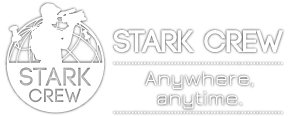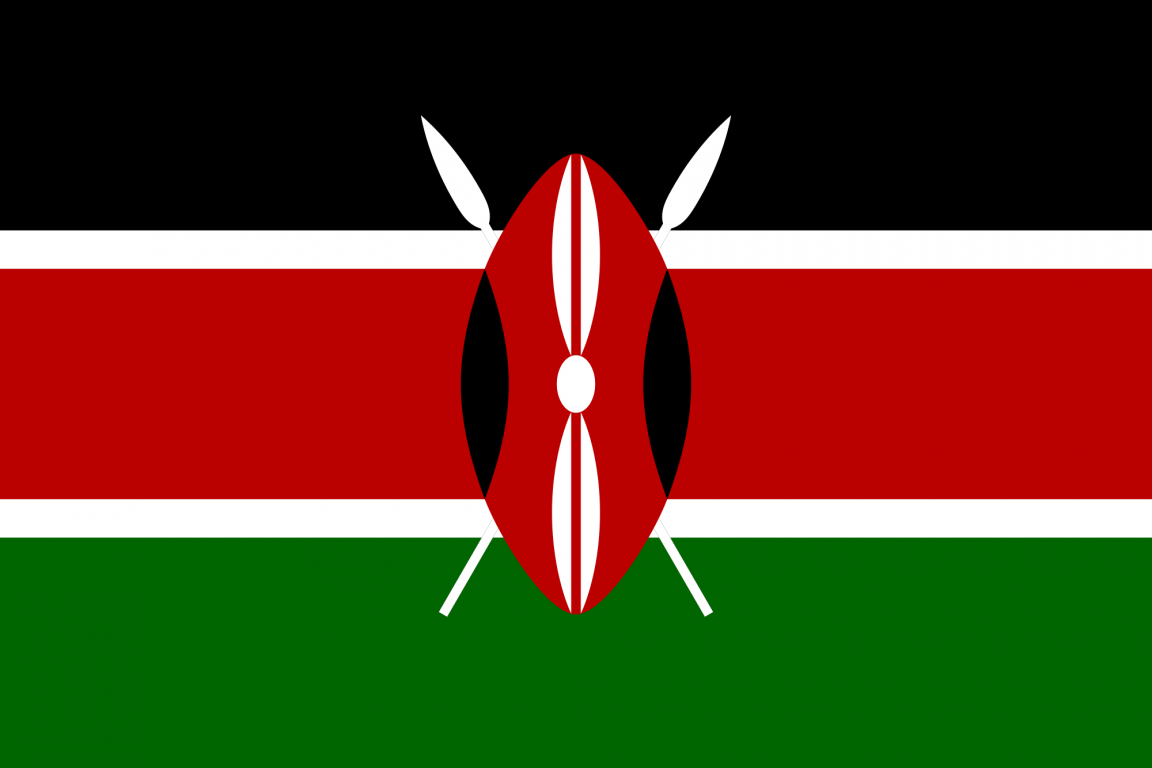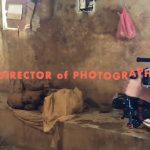FILMING IN KENYA, A GUIDE
At a glance
Kenya is one of the most iconic filming locations in Africa. It’s been home to some of renowned films, including the Oscar award winning film Out of Africa, the acclaimed film The Constant Gardener and the blockbuster Tomb Raider. Recently, it was a location for the 21st century TV Series Sense 8.
Locally acclaimed feature films such as Nairobi Half Life and Supa Modo, filmed in Kenya, have won festivals on local and international stages.
WHY KENYA?
Picturesque Locations
From forested hills in Cherengani, the mountainous terrain in the slopes of Mt. Kenya to the sandy beaches in Diani, Kenya has some of the most breathtaking sceneries. Additionally, the Kenyan sunsets are a sight to behold which can be experienced from within the city, the coast and village landscapes.
Rich Culture
The country celebrates rich culture and is home to the Maasai community, Turkana community as well as the Mijikenda community in the coastal region. The music from the wide array of indigenous communities carry tales of the old and comes with a myriad of folk stories.
Authentic people
Be it in the busy streets of Nairobi or the countryside, Kenyans everywhere are warm and welcoming. They create safe spaces for foreigners and share their history with pride. Kenya has a total of 43 tribes and counting. These tribesmen reside in the country’s 47 counties offering a rich diversity from every angle.
Wildlife
Only in Kenya is one able to see the big five at one go; the lion, the leopard, the elephant, the rhino and the buffalo. The best National park for this would be the Maasai Mara where the animals can be seen all year round. This is where the great wonder of the wilderbeest migration is witnessed in the month of July till late September. Other major national parks are Tsavo, Ol Pejeta conservancy, Amboseli, Nairobi National Park and the David Sheldrick Trust which is an orphanage for elephants.
Climate
Kenya lies on the equator and has ideal weather all year round. The average temperature is 18 degrees. The tropical seasons always have sunshine even though evidenced by dry warm season in December through to March. The long rains start in April through to June. Cool dry season follows in July till October and short rains October to December.
With the advent of climate change, seasons have been changing and in 2016 and 2018 there was very little rain and it was mostly dry all year round.
Notably, the best times to film are during the dry periods; December to January and June to October.
Film Agents – Kenyan production companies
To film in Kenya you need to get in touch with a registered film agent. Most of them are listed in the Kenya Film Commission Directory found here; http://kenyafilmcommission.com/index.php/film-directory/film-agents-directory
This means that the company selected will be the select local production company that will facilitate filming while in Kenya. This company will get licenses for all the local crew, get filming permits and licenses from the Department of Film Services, hire equipment on your behalf, book accommodation in Kenya and ensure that your filming is a success.
Film agents are also responsible to get extra security while filming in high risk areas such as crowded markets, Nairobi CBD, Urban slums and ghettos.
Special filming Passes
Non – Kenyan citizens filming in Kenya are required to get special passes as per the Kenyan laws stipulated below in the Kenyan Citizenship and Immigration act 2011 and article 35 (1). Application of these passes can be done online alongside application for Kenyan Visas.
- Issuance of visas (As per the Kenya Film Commission Website)
(1) The Cabinet Secretary shall from time to time, make regulations, prescribing the types of visas and specifying persons or groups of persons and countries
whose citizens shall be required to obtain or exempted from obtaining visas before entering Kenya.
(2) A person who wishes to obtain a visa shall apply to the Director in the prescribed form.
(3) A visa shall be issued by the Director or such officers as may act under powers delegated by the Director.
(4) Notwithstanding subsection
(5) Possession of a visa under this section shall not exempt any person entering Kenya from complying with any legislation relating to immigration.
- Types of permits and passes
(1) There shall be such classes of permits and passes as shall be prescribed under the regulations.
(2) Permits shall be issued in the manner provided in section 40 of this Act.
(3) Passes shall be issued
Special Passes are issued by the Department of Immigration. The special passes or work permits are available for Kshs 15,000.00. Application requirements need to be forwarded to the Department by the film agent who is facilitating the international film production.
Find all the requisite information necessary for your alien card, pass and permit application at https://fns.immigration.go.ke/
Filming with Drones
Drone filming is under a lot of restrictions at the moment and the issue is still in court. Licenses to operate drones are currently not being issued and importing drones into the country is currently impossible. Alternatives can be ronins or other suitable grip equipment which crews can bring to Kenya or hire from locally.
Filming in parks
This requires a special permit and payment of park fees which the local filming agent can facilitate for the visiting crew. For more customerservice@kws.go.ke can give more information. Notable national parks are Maasai Mara, Tsavo, Hell’s gate, Nairobi National Park and Amboseli National Park.
Filming and Hiking
Some of the best places to film beautiful views while hiking are Mt. Longonot which is a simple one-day climb. The peaks of the great Mt. Kenya need more preparation and can be done in a week’s time. Menengai crater is also a scenic sight that can be captured on a hiking expedition.
Coastal Region
Areas such as Lamu, Watamu, Malindi and Diani are the best for ocean scenery. Indian Ocean waters are perfect for scuba diving and filming under water where the historic coral reefs and sea creatures thrive and live.
In Mombasa, you’ll find one of the biggest ports in the region. The city is cosmopolitan and has a myriad of local and foreign tourists round the year. Here in lies the history of the coast found in places such as Fort Jesus, Old Town, Haller Part and Marine National Park.
Lamu island is more laid back and has an in-depth coastal feel from the people fishing in the traditional dhows, historical mosques, interesting alleyways and Arab houses.
Central Region
This is the more rural part of Kenya where you will meet farmers who contribute to Kenya’s bread basket. There are many tea and coffee plantations characterized by the hilly terrain. It’s important to note that this is the home of one of Africa’s tallest peak; Mt. Kenya. Fourteen Falls and Thomson falls are a visual splendor especially during the rainy seasons.
Birds Eye View
Some of the most iconic overhead filming can be seen up north in Lake Turkana that is lined with crocodile water ways and Samburu regions, home to the camels.
The Great Rift Valley
Geologists call it a wonder of the world. Stretching from Jordan to Mozambique, the rift is lined with fresh and soda water volcanic lakes such as Lake Baringo, Lake Bogoria, Lake Naivasha and Lake Elementaita renowned for their large populations of flamingos and bird species.
Film Crew and Talent
There’s a large pool of film crew in Kenya, there are well trained and depending on the specifics of the shoot, you can get experienced people to work with. For basic shoots, you can get cinematographers, directors, producers and sound recordists for up-to a daily rate of $600 a day each. The rates are however negotiable. More creative crew are available on a needs basis; assistant directors, art directors, gaffers, grip, set designers, lighting technicians etc. Additionally, you can get fixers from any part of the country.
For talent, you need to liaise with local casting agent and filming agent to make casting calls. Actors and actresses are from diverse backgrounds. Locally acclaimed films that have won multiple local and international awards have featured an all- Kenyan cast. Check the One Fine Day Films and Ginger Ink film collaboration from the last five years. Some of the films produced with all-Kenyan cast include Soulboy, Nairobi Half Life, Necessary Noise, Supamodo, Katikati, Veve and Lusala. Veve is already on Netflix.
Pre – Production
It’s advisable to do a good amount of pre-production and research before embarking on travel. The key areas to focus on include locking down of characters and or cast, location scouting, securing filming crews and permits. Additionally, having all paperwork down and contracts signed as this will make production much easier. It’s advisable to have a mix of foreign crew and local crew to ease production in terms of interacting with locals and getting access.
Production Equipment
Equipment for hire is available in Kenya. From DSLR cameras such as Canons and GH5s on one hard for more modest budgets. The Canon 300 and the Sony FS series are more expensive and also not readily available. Red Epic and The Arri are not easily available either and filmmakers are advised to consider travelling with their kits. Camera accessories such as steady cams, ronins and lenses can be hired for a fee. The same goes for sound gear and lighting kits.
Film Studios in Nairobi provide a wide range of extra equipment and hire out their studio premises for creating sets. Here you can also hire fully equipped generators for competitive rates. Offering similar services is Kenya Grip.
If bringing in equipment from outside, it is advisable to pay the required cash bond at customs prior and to clear all the film equipment with the film agent who will be handling production in the country.
Post Production and Music
Most of the production companies are not equipped with high end production studios but you can always find a select few who’ve done international projects. Most of the post production is either done abroad or in South Africa where you’ll find an array of post-production studios to choose from. For independent documentaries however, it’s easy to get very creative forward thinking editors whose portfolio of work goes beyond the continent.
Getting licensing for Kenyan music can also be organized by local producers and the musicians themselves. Some of the regional productions over the years that have had very good local sound courtesy of homegrown talent are MTV Shuga TV series and Nairobi Half Life
Transport and Accommodation
The costs of flights coming into Kenya range from country to country. It’s advisable to book well in advance to get the best deals.
While travelling across the country, crews can make use of 4WD vehicles which are available for hire at reasonable rates. If travelling to the coast or north eastern areas, which are further out, local airlines offer affordable rates as well. Some of them do not have daily flights so it’s best to make bookings early.
For five-star hotel accommodation, there’s a long list to pick from in all the major cities. From Hilton group of hotels to Raddison Blu, Sankara, Serena group the list goes on and on. There is also affordable vetted Airbnb accommodation available at negotiable prizes in Nairobi and Mombasa. In the different counties, three star hotels and guest houses are fairly comfortable and affordable.
Communication
Through the film agent, it’s easy and possible to get Kenyan sim-cards to use while in the country. For meetings, video conferencing facilities and co-working spaces are also available.
Although Swahili is the national language in Kenya, English is used for teaching in all formal institutions of learning and therefore considered as the official language.
When going deeper into rural Kenya, fixers acts as translators and help filmmakers get around. It’s important to report to the local authorities, for instance, the area chief when you are in some of the remote areas for security purposes.
Major Towns and their Environs
Nairobi
The capital city, also known as Central Business district (CBD) has a good number of office buildings, government buildings, the Parliament Building as well as recreational parks such as Uhuru Park.
In the outskirts of the CBD including Westlands, Upper Hill and Ngong road, we have more office complexes and also co-working spaces such as NairobI Garage, ihub, Nailab among others. For visitors, these are the best places to work in between shoots. They offer daily and monthly membership rates.
A great natural retreat closeby is the infamous Karura Forest along Limuru road which is 30-40 minutes away from the city centre. It offers clean fresh air and is ideal for filming especially for stories to do with environment. Karura Forest is connected to the late Prof. Wangari Maathai a Nobel Laurette who fought a good fight against the government of the time to preserve the precious and beautiful forest. It is perfect for jogging as well as bike riding.
Alliance Francaise Nairobi is a cultural center that hosts a monthly exhibition that showcases Kenyan artists, painters and photographers. It’s also the place to watch Kenyan plays and experience Kenyan theatre. Documentary screenings and discussions also happen at the centre monthly, courtesy of Docubox East Africa.
The famous Karen Blixen Museum is a walk down memory lane and is available for viewing. It’s located near the Giraffe Centre and the Giraffe manor.
Mombasa
The coastal city of Mombasa is an island and a tourist destination bordering other coastal towns. With the Standard Gauge Railway, travelling to Mombasa is now an experience altogether. Along the way, you get to see Elephants and other wildlife at the Tsavo National Park.
Kisumu
This city borders the shores of the beautiful Lake Victoria. Here you get to sample the delicious Tilapia fish. There are a couple of beaches that are further in that offer great scenic beauty; these include Dunga beach and Rusinga Island.
Naivasha
This town is known for the great number of fresh and soda water lakes, also a sanctuary for flamingos and countless bird species. Naivasha is also famous because of the many flower farms around and has a good number of very beautiful hotels. Enashipai resort, Lake Naivasha Resort and Lake Naivasha country club are the more popular hotels.
Nanyuki
Nanyuki is a small town in Laikipia County that is serene and green. It’s near the famous Ol Pejeta sanctuary for Rhinos and Chimpanzees. It’s also a gateway to Mt. Kenya and picturesque views of the mountain can be seen. Here you can access the Mt. Kenya National park as well as the adjacent Naru Moru and Sirimon Nature Trails. This is home to the rare, beautiful and endangered Grevy Zebra.
Eldoret
This is the principal city in Western Kenya. It lies south of the majestic Cherengani Hills. This is the home of most of the Kenyan Marathon runners such as Edwin Kipchoge. When you go further in to Iten, you can see them training all year long. Eldoret is renowned for its wheat and pyrethrum plantation.
Notable Festivals in Kenya
To experience the Kenyan culture and music, you can visit some of the cultural festivals. The notable ones include:
- Lamu Cultural Festival – Arts and Culture
- Mararal Camel Derby Festival – Arts and Culture
- Nairobi Film Festival – Films
- Kenya Kite Festival –
- Pawa Festival – Arts and Culture
- Lake Turkana Festival – Culture
- Storymoja Festival – Books, books, and books.
- Rhino Charge – Safari rally
- Koroga Festival – Music, Arts and Culture.
- Cake Art Festival
FINAL TIDBITS
Nairobi Nightlife
Js Bar and Restaurant and Brew Bistro are some of the cozy places to unwind when in Nairobi most of the Friday evenings. There’s a mix of good band music, karaokes and DJ throw down.
Nyamachoma
A Kenyan authentic delicacy of roasted beef, goat or chicken meat that is perfect with a cold beer any day. This is perfect with Kenyan Ugali and Kachumbari.
Smart Gyms
Working out in Nairobi has been made easier by the availability of smart gyms situated in different locations across the city.
Staying Safe
You should get necessary vaccination such as Yellow fever and other ailments. Malaria, for instance, is highly infectious in the coastal region. For more information, you can go to wwwnc.cdc.gov.


